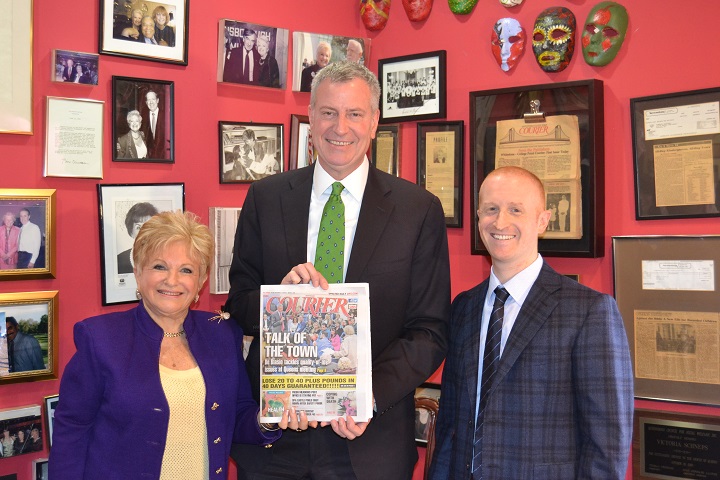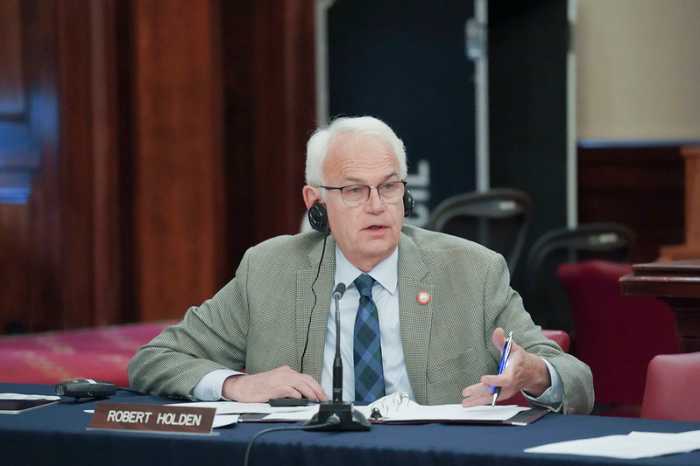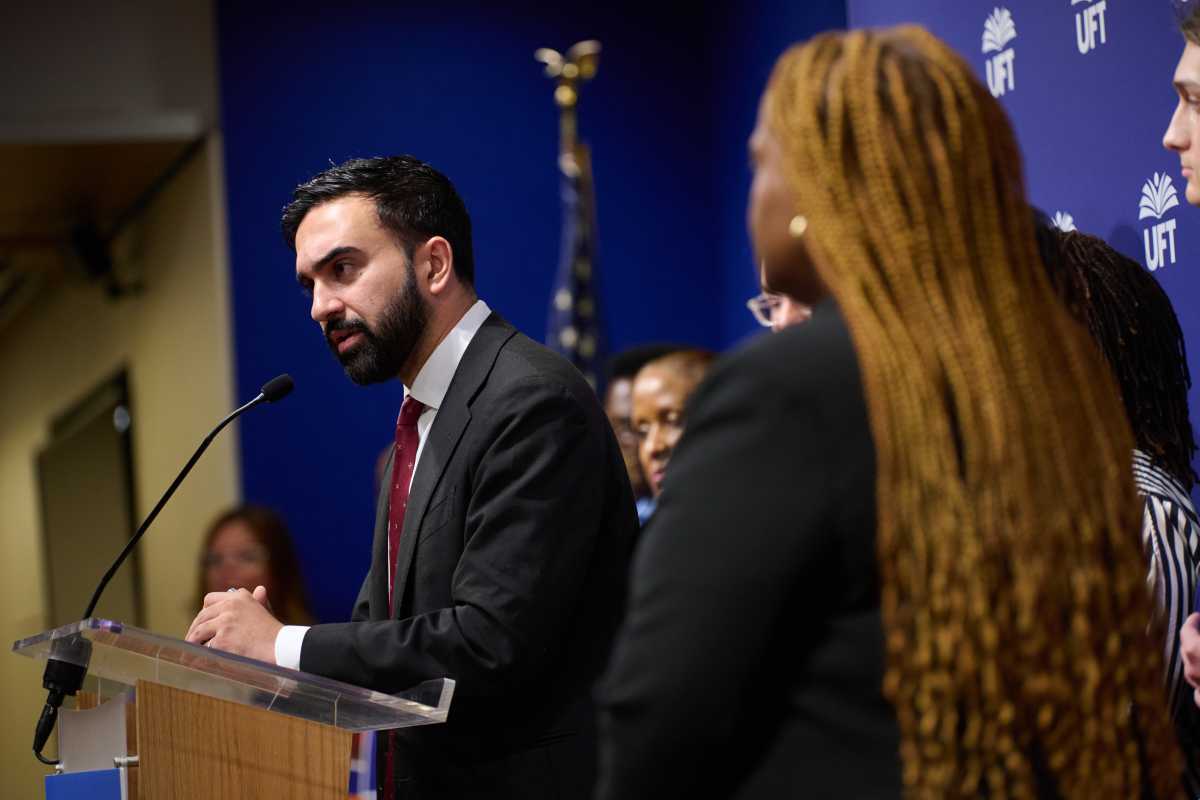Mayor Bill de Blasio visited the Queens Courier office in Bayside on Thursday morning for an editorial board interview focused on the important issues of Queens residents.
The mayor highlighted the overcrowding of schools, specifically in School Districts 24 and 25; the NYPD’s ongoing efforts to decrease crime throughout the borough and city; the five-borough ferry system; and the rising concern of the homeless across Queens.
During his tenure as mayor, de Blasio has made education one of his top priorities, creating the Universal Pre-K (UPK) Program, which provides free, high-quality, full-day pre-K for 4-year-olds.
For years now, School Districts 24 and 25 have been notoriously overcrowded, with high student-to-teacher ratios and students being forced to have classes inside of trailers. De Blasio plans on creating more seats for these students, to allow them to get the highest level of education in an environment that can foster learning.
“The bottom line is, we’re going to be doing a lot to expand the number of seats,” de Blasio said. “We definitely need the seats, and there is a real overcrowding issue in those two districts and we’ve put a lot of money in the budget to address overcrowding.”
Queens, and New York as a whole, saw a decrease in the number of stop and frisks taking place, as well as a drop in serious crimes.
“The numbers speak for themselves. Stops are down 93 percent over the last few years. Crime is also down consistently,” de Blasio said. “In the first two years I’ve been in office, overall serious crime is down 6 percent, almost.”
As of Feb. 29, there have been only 17 murders for the year, the lowest number for the first two months of any year since CompStat began in 1994, de Blasio announced. The mayor credits this dip in crime to the way police officers are being trained and the regular training officers now receive.
“So the point is, the new approach to policing, which is much more neighborhood-focused, much more use of technology, much more focused on what we achieve in the training, is showing very promising results,” de Blasio said.
Regarding transportation, the mayor is confident that the new five-borough ferry service scheduled to launch next year will be able to reach places that have been underserved while creating more accessibility along the Queens-Brooklyn waterfront.
“Our focus has been both about moving people and building the economy,” de Blasio said. “What we are trying to do with the ferry system is maximize people’s options while growing the economy simultaneously, and we have to make sure we can make it work and support it.”
Another major issue for Queens is the increasing number of homeless throughout the borough and where these people will be housed. Many communities have shown reluctance to shelters and other buildings coming into their neighborhoods, and the mayor feels this is because of a lack of knowledge of who would be at these locations.
“What I hear in communities all over the city is they’re concerned about safety,” de Blasio said. “That’s what it’s about. They want to know that if there is any kind of facility that they will be safe. I don’t find, broadly, a lack of compassion for their fellow man and woman … what’s happening more and more is homelessness is economic … it is families who fell out of their housing for economic reasons.”
The mayor feels that in order to combat this, the public needs to be more educated on who is in these shelters — about 40 percent of the families in shelters have either had a member who is currently working or has worked in the last few months, de Blasio said.



































